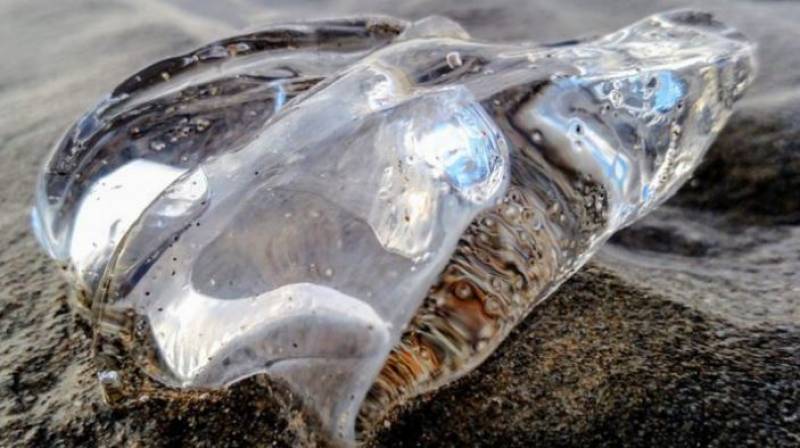Date Published: 23/07/2024
Salps: The jelly-like creatures invading Spanish beaches
Often mistaken for jellyfish, these transparent animals are turning up on shores throughout Spain

Spanish beaches, particularly those along the Mediterranean, are facing an unusual invasion this summer as the oceans heat up. This time, it's not sun-seeking tourists but tiny, translucent creatures known as salps that are making waves.
These see-through, jellyfish-like animals, resembling tiny, water-filled plastic bags, have washed up on shores in an unexpected and mysterious arrival.
The appearance of these strange creatures has sparked curiosity and concern among locals and tourists alike. But what exactly are these transparent invaders, and where did they come from?
Salps, belonging to the Thaliacea family, are small, barrel-shaped animals that drift in the open ocean. They are part of a group known as tunicate grazers, which feed on algae and contribute to the ocean's ecosystem by controlling algal blooms.
 A study published in the journal Nature also determined that the presence of salps can increase the carbon absorption process by up to eight times, which is beneficial for humans and also for the environment as it helps reduce the presence of greenhouse gases that cause climate change.
A study published in the journal Nature also determined that the presence of salps can increase the carbon absorption process by up to eight times, which is beneficial for humans and also for the environment as it helps reduce the presence of greenhouse gases that cause climate change.While they are typically found in warm, tropical waters, their presence on Spanish beaches is an unusual occurrence.
Marine biologists and experts are studying this phenomenon to understand its underlying causes. One theory suggests that the salps may have been carried by ocean currents, pushed closer to shore by unusual wind patterns or changes in water temperature. It's also possible that a bloom of salps, a natural occurrence where their population rapidly increases, could be responsible for their sudden appearance.
While salps are not harmful to humans, unlike many of their look-alikes, jellyfish, their presence in such large numbers can have ecological implications.
As they feed on algae, an excessive population of salps can disrupt the balance of the marine food chain, affecting other species that rely on the same food source. Additionally, the decomposition of large numbers of salps can lead to oxygen depletion in the water, creating potential issues for marine life.
On a more immediate note, salps can also be quite smelly, an obvious problem for people trying to enjoy a day at the beach.
But the good news is that these slimy invaders never hang around too long, as the very tides that carry them onto the beaches quickly drag them back out to sea, continuing to help the biodiversity of our environment.
You might also like: The beaches in Spain where you are likely to spot a shark
Images: Oregon Marine Reserve
Loading
See more news about animals in Spain:
OR
Sign up for the Spanish News Today Editors Roundup Weekly Bulletin to get a comprehensive email with all the week’s news for Spain, Murcia, Alicante and Andalucía.
Get a sneak peek – here are a few of our recent Subscription Bulletins:
Discount Special Offer subscription:
36.95€ for 48 Editor’s Weekly News Roundup bulletins!
Please CLICK THE BUTTON to subscribe.
Contact Spanish News Today: Editorial 966 260 896 /
Office 968 018 268



























